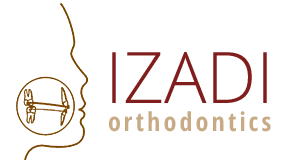Sleep apnea is a prevalent sleep disorder affecting millions of Americans. It not only disrupts sleep patterns but also significantly impacts overall health. Sleep apnea occurs when a person’s breathing repeatedly stops and starts during sleep. This condition could lead to poor sleep quality, excessive daytime sleepiness, and a host of other health complications. Dental treatment could help prevent symptoms and improve both sleep and oral health.
Understanding Sleep Apnea
Obstructive sleep apnea (OSA) is the most common form. It occurs when the muscles in the throat relax excessively. This relaxation causes a blockage in the airway. Common symptoms of OSA include loud snoring, episodes of breathing cessation during sleep, abrupt awakenings accompanied by gasping or choking, and excessive daytime fatigue. Untreated sleep apnea can increase the risk of serious health issues such as heart disease, stroke, and type 2 diabetes. It also often affects mental health, leading to conditions like depression and anxiety.
The Role of Dentists in Treating Sleep Apnea
Many people traditionally associate dental professionals with oral health care, focusing mainly on teeth and gums. However, dentists play a crucial role in the treatment of sleep apnea. Dentists utilize oral appliances to effectively manage mild to moderate cases of obstructive sleep apnea. These devices work by keeping the airway open during sleep.
Oral appliances used in OSA treatment resemble mouthguards or orthodontic retainers. They function by repositioning the lower jaw and tongue to prevent airway obstruction. Dentists custom-fit these devices for each patient, better ensuring comfort and maximizing effectiveness. This personalized approach is essential for successful treatment outcomes.
Types of Oral Appliances
There are several types of oral appliances available for sleep apnea treatment. The most common is the mandibular advancement device (MAD). This device works by moving the lower jaw forward, which helps maintain an open airway. Another type is the tongue retaining device (TRD), which holds the tongue in place to prevent it from blocking the airway.
Both types of devices have proven effective for many patients. They could significantly reduce snoring and improve the quality of sleep. Patients who use these devices often report feeling more rested and alert during the day, which enhances their overall quality of life.
Benefits of Dental Treatments for OSA
Dental treatments offer numerous benefits for patients suffering from sleep apnea. Oral appliances are non-invasive and user-friendly. They do not require surgical intervention or extensive medical procedures. Patients also find them easy to travel with, making them a convenient option for those who travel frequently.
Another advantage of oral appliances is improved adherence to treatment. Many patients find continuous positive airway pressure (CPAP) machines cumbersome and uncomfortable. As a result, they often discontinue use. Oral appliances provide a more comfortable alternative, increasing the likelihood of continued use and adherence to treatment.
By effectively reducing the symptoms of OSA, dental treatments could contribute to improved overall health. Better sleep quality often leads to enhanced mental and physical well-being. Patients may experience fewer headaches, improved concentration, and a more positive mood. These improvements could significantly impact daily life and productivity.
Consulting with a Dentist for Sleep Apnea
Individuals who suspect they may have sleep apnea should consult a dentist experienced in sleep medicine. A comprehensive evaluation, often including a sleep study, is necessary to confirm the diagnosis. The dentist will assess the patient’s condition and recommend the most suitable treatment plan.
Custom-fitted oral appliances require regular follow-up appointments. The dentist will monitor the patient’s progress and make necessary adjustments to the device. This ensures optimal results and continued comfort for the patient. Regular follow-ups also allow the dentist to address any issues or side effects that may arise.
Considerations and Limitations
While oral appliances offer an effective solution for many, they may not be suitable for everyone. They are most effective for patients with mild to moderate OSA. Severe cases may require alternative treatments such as CPAP therapy or surgical intervention. It is important for patients to discuss all available treatment options with their healthcare provider to make an informed decision.
Some patients may experience side effects from using oral appliances. These can include jaw discomfort, dry mouth, or excessive salivation. Regular dental visits are essential to address these issues. The dentist can make necessary adjustments to the device to improve comfort and effectiveness.
Sleep Apnea Treatment in Timonium, MD
At Izadi Orthodontics, we understand how sleep apnea affects your oral and overall health. Early intervention is often key to preventing long-term consequences of poor sleep. Contact our office today to schedule a consultation and learn more about your treatment options.

